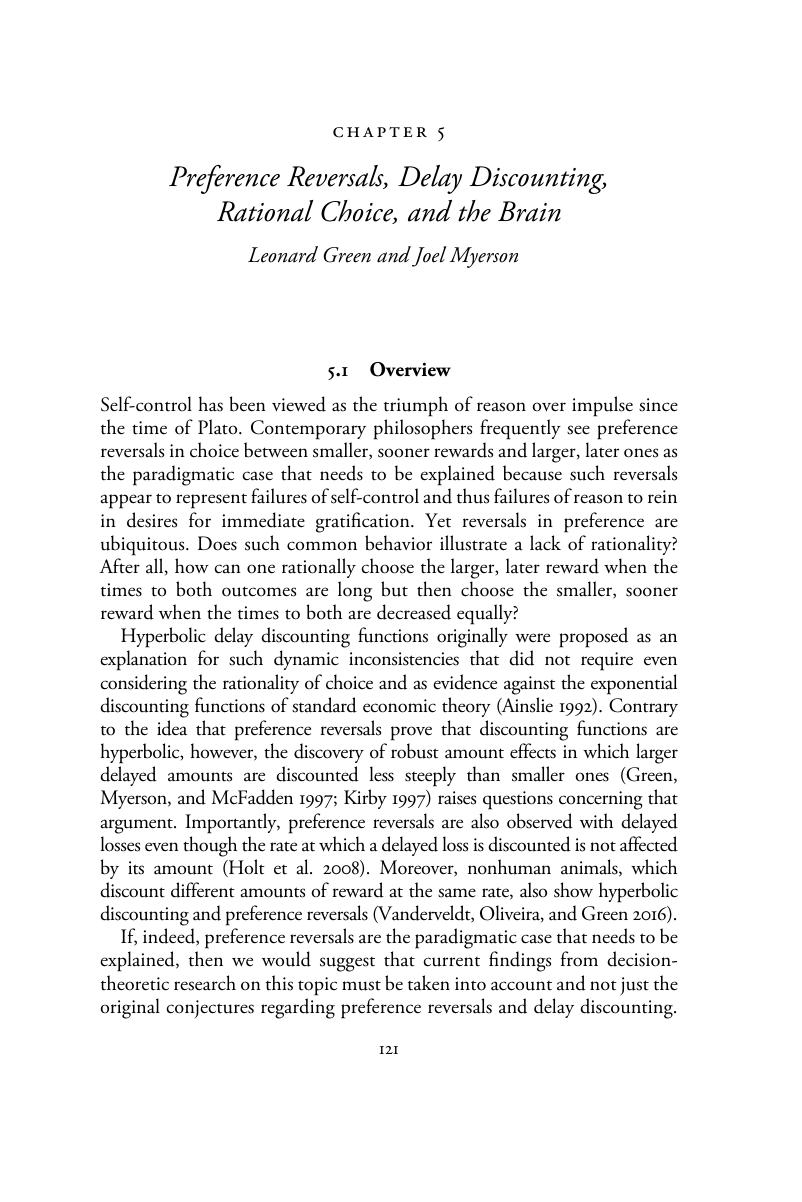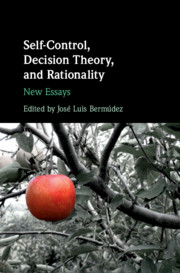Book contents
- Self-Control, Decision Theory, and Rationality
- Self-Control, Decision Theory, and Rationality
- Copyright page
- Contents
- Figures
- Tables
- Contributors
- Acknowledgments
- Introduction
- Chapter 1 Temptation and Preference-Based Instrumental Rationality
- Chapter 2 Self-Prediction and Self-Control
- Chapter 3 Rational Plans
- Chapter 4 Self-Control and Hyperbolic Discounting
- Chapter 5 Preference Reversals, Delay Discounting, Rational Choice, and the Brain
- Chapter 6 In What Sense Are Addicts Irrational?
- Chapter 7 Why Temptation?
- Chapter 8 Frames, Rationality, and Self-Control
- Chapter 9 Exercising Self-Control
- Chapter 10 Putting Willpower into Decision Theory
- Chapter 11 The Many Ways to Achieve Diachronic Unity
- Index
- References
Chapter 5 - Preference Reversals, Delay Discounting, Rational Choice, and the Brain
Published online by Cambridge University Press: 29 November 2018
- Self-Control, Decision Theory, and Rationality
- Self-Control, Decision Theory, and Rationality
- Copyright page
- Contents
- Figures
- Tables
- Contributors
- Acknowledgments
- Introduction
- Chapter 1 Temptation and Preference-Based Instrumental Rationality
- Chapter 2 Self-Prediction and Self-Control
- Chapter 3 Rational Plans
- Chapter 4 Self-Control and Hyperbolic Discounting
- Chapter 5 Preference Reversals, Delay Discounting, Rational Choice, and the Brain
- Chapter 6 In What Sense Are Addicts Irrational?
- Chapter 7 Why Temptation?
- Chapter 8 Frames, Rationality, and Self-Control
- Chapter 9 Exercising Self-Control
- Chapter 10 Putting Willpower into Decision Theory
- Chapter 11 The Many Ways to Achieve Diachronic Unity
- Index
- References
Summary

- Type
- Chapter
- Information
- Self-Control, Decision Theory, and RationalityNew Essays, pp. 121 - 146Publisher: Cambridge University PressPrint publication year: 2018
References
- 4
- Cited by



